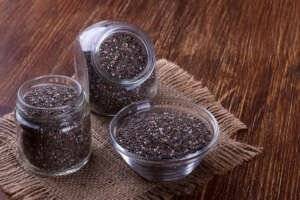Cartilage is the unsung hero of joint health, enabling smooth and pain-free movement by cushioning the bones. As we age or deal with conditions like osteoarthritis, cartilage can deteriorate, leading to discomfort and stiffness. While medical treatments play a crucial role, nutrition is equally powerful in supporting cartilage repair and joint health. Below are 10 nutrient-rich superfoods, supported by scientific research, that can help repair cartilage, reduce inflammation, and maintain joint integrity.

Topic Overview
Toggle1. Fatty Fish

Fatty fish such as salmon, mackerel, and sardines are packed with omega-3 fatty acids, which have strong anti-inflammatory properties. These essential fats help reduce joint inflammation and stiffness, especially in arthritis sufferers.
How to Include: Grill or bake salmon and pair it with a turmeric glaze for an added anti-inflammatory benefit.
2. Turmeric

Turmeric is rich in curcumin, a compound known for its powerful anti-inflammatory and antioxidant properties. Studies show curcumin can slow cartilage degeneration and reduce joint pain.
How to Include: Add turmeric to smoothies, soups, or teas. Pair with black pepper to enhance absorption.
3. Leafy Greens

Leafy vegetables like spinach, kale, fenugreek leaves, and broccoli are loaded with vitamins C and K, which are essential for collagen production—a key protein in cartilage. Broccoli also contains sulforaphane, a compound that reduces joint damage.
How to Include: Add spinach to a smoothie or sauté kale with olive oil and garlic for a nutritious side dish.
4. Bone Broth
Bone broth is a natural source of collagen, gelatin, and amino acids that support cartilage regeneration. It also contains glycosaminoglycans, compounds that mimic the natural components of cartilage.
How to Include: Sip bone broth as a warm drink or use it as a base for soups and stews.
5. Berries
Berries like blueberries, raspberries, and strawberries are rich in antioxidants such as anthocyanins. These compounds combat oxidative stress and inflammation while supporting collagen synthesis through their high vitamin C content.
How to Include: Add berries to your morning yogurt or oatmeal, or enjoy them as a snack.
6. Walnuts

Walnuts are an excellent source of omega-3 fatty acids, specifically alpha-linolenic acid (ALA), which helps reduce joint inflammation. They also provide antioxidants that protect joint tissues.
How to Include: Sprinkle chopped walnuts on salads or mix them into oatmeal.
7. Ginger
Ginger contains bioactive compounds like gingerols and shogaols, which have been shown to reduce joint inflammation and improve mobility in osteoarthritis.
How to Include: Brew ginger tea or add freshly grated ginger to soups, stir-fries, or marinades.
8. Citrus Fruits

Citrus fruits like oranges, lemons, and grapefruits are high in vitamin C, which is critical for collagen production. This helps maintain cartilage structure and protect against oxidative damage.
How to Include: Start your day with fresh-squeezed orange juice or infuse water with lemon slices.
9. Avocado
Rich in monounsaturated fats and vitamin E, avocados help combat inflammation and protect cartilage cells. Avocado oil has also been shown to support joint repair.
How to Include: Spread avocado on whole-grain toast or blend it into smoothies for a creamy texture.
10. Chia Seeds

Chia seeds are a plant-based source of omega-3 fatty acids, protein, and fibre. These nutrients help reduce inflammation and promote cartilage and tissue repair.
How to Include: Stir chia seeds into yogurt, overnight oats, or smoothies for a nutritional boost.
Practical Tips for Maximum Benefit
- Diversity is Key: Incorporate a mix of these foods to cover all essential nutrients for joint health.
- Consistency Matters: Regular consumption is crucial, as the benefits of nutrition build over time.
- Pair Foods for Better Absorption: Combine turmeric with black pepper or eat fat-soluble vitamins like K with healthy fats for improved uptake.
Conclusion
Nutrition plays a vital role in maintaining joint health and repairing cartilage. By including these 10 superfoods in your diet, you can proactively support your joints, reduce inflammation, and improve overall mobility. While dietary choices can’t replace medical treatments, they offer a natural and effective way to complement your joint health regimen.
References
- Calder PC. Omega-3 polyunsaturated fatty acids and inflammatory processes: Nutrition research updates. BioMed Central Nutrition, 2020.
- Christiansen BA, Bhatti S, et al. Management of Osteoarthritis with Avocado/Soybean Unsaponifiables. Cartilage, 2015.
- Zhao J, et al. Efficacy and safety of curcumin therapy for knee osteoarthritis: A Bayesian network meta-analysis. Journal of Ethnopharmacology, 2024.


